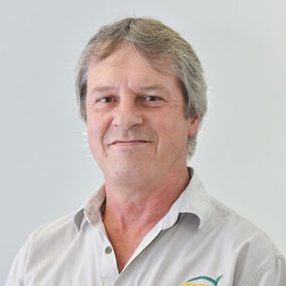Soil Health & Conservation
Soil Health & Conservation
Sugarcane monoculture has been linked to soil health degradation, which contributes directly to declining production and lowered resilience of the soil system against unfavourable conditions. It is therefore important to understand the management options available to sustain the production potential of soils. All our advice and information can be found in the publications and other resources listed below.
INFORMATION SHEETS
- 6.1 Soil quality and degradation
- 6.2 Soil organic matter
- 6.3 Soil biology
- 6.4 Managing soil acidity
- 6.5 Liming materials and their use
- 6.6 Gypsum ameliorants and their use
- 6.7 Management of high pH (alkaline) soils
- 6.8 Management of magnesium-rich (magnesic) soils
- 6.9 Soil Loss - Management of erosion
- 6.10 Compaction
- 6.11 Controlled infield traffic in sugarcane production
- 6.12 Vertical mulching
- 6.13 The pros and cons of mulching or burning at harvest
- 6.14 Subsoiling Ripping
- 6.15 Ridging
- 6.16 Mole drainage
- 6.17 Minimum tillage
- 6.18 Gully stabilisation and repairs
- 6.19 Establishing vegetation for wetlands
- 6.20 Understanding and managing wetlands for the sugarcane farmer
Books
Understanding and managing soils in the SA sugar industry
Sugarcane production imposes unique stresses on the soil. Monocropping and the removal of large amounts of crop material from the land at harvest, often after burning away crop residues, impact on soil health in various ways. Fortunately, there are several practices that farmers can implement to optimise both soil health and productivity.
This book has been written to serve as a reference guide for students and farmers. It starts by providing a basic understanding of the physical, chemical and biological properties of soils, and then goes on to describe some of the important practices which serve to conserve soil health and thereby promote sustainable agriculture.
Identification and management of the soils of the SA sugar industry
Knowing the soils that occur on a sugarcane farm and understanding how and why they differ will assist growers in deciding how to manage the crop more effectively under different soil bioclimatic conditions and help to increase farm productivity and profitability in harmony with environmental issues. Cane grows well on good soils with relatively little management, but greater knowledge is required of the many poor soils in the sugar industry if they are to be conserved and managed in the best way possible.
This book is designed to provide a practical guide on how to identify, name and manage the more common soils that occur in the industry. Several new soil forms have been identified and where appropriate soil families have been introduced into the system in line withthe publication, Soil Classification – A Taxonomic System for South Africa (published by the Institute for Soil, Climate and Water (formerly Soils and Irrigation Research Institute), 1991).
Green manuring
Green manuring involves the use of selected crops to improve soil health. In the sugar industry, this practice is particularly important to break the sugarcane monoculture and improve overall soil health. There are also benefits from a decrease in diseases and pests that are hosted within the soil from one cane crop to the next.
Controlled infield traffic in sugarcane production
Videos
Erosion (isiZulu)
Decision Support System
Nomograph
The nomograph provides a means of integrating all factors that need to be considered when designing conservation plans for sugarcane fields. The objective of this tool is to assist growers in the design of structures to minimise soil losses through erosion. This tool was published in 1987 and is commonly known as the Nomograph.
Contour Spacing Design Tool (CoSDT)
The Contour Spacing Design Tool (CoSDT) is used for the design of soil and water conservation structures in the South African sugar industry, and to determine soil losses associated with given agricultural production practices. The objective of this tool is to assist growers in the design of structures to minimise soil losses through erosion. This tool was published in 2020 and is commonly known as CoSDT.
EconoCane: Economics of Mulching Tool
This complex DSP must be used in conjunction with a specialist. It estimates returns comparing burning with no burning at harvest. It can also be used to determine the impact of harvesting options (burn vs no burn and manual vs mechanical) on agronomy, irrigation and transport costs. EconoCane can be used to investigate leaf residue densification and the associated impact on transport. This is particularly important when investigating alternative revenue streams that can make use of the leaf material, such as cogeneration.
RESEARCH
Research in Soil Health focuses on the development of knowledge, technologies and resources to enable the maintenance of, and where necessary, the restoration of soil health. See CROP PERFORMANCE AND MANAGEMENT for details.
Subscribe to our News Alerts to receive our latest information.


